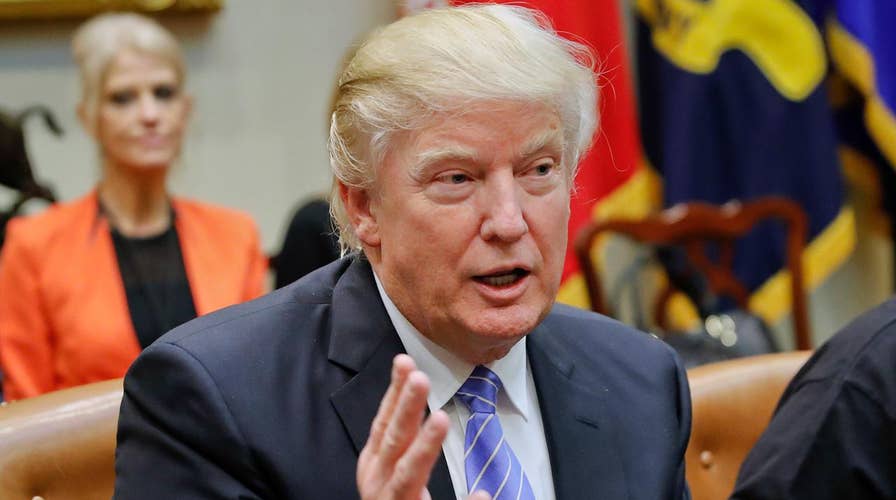Trump meets with auto leaders, eyes more executive orders
John Roberts reports from the White House
The success of President Trump's efforts around job growth is less about getting car companies to build in the U.S. than it is to create new sustainable companies in those areas that supported him in the elections. Jobs are needed most in the impacted areas in the Midwest (Pennsylvania, Ohio, Indiana, Michigan, Minnesota, Iowa, Illinois and Wisconsin) where workers have been disadvantaged and marginalized by global economic forces.
The National Bureau of Economic Research estimates that startups account for 20 percent of gross job creation.
In a previous Fox News op-ed I asserted that “the Midwest needs to become a center of excellence for new businesses that are formed up by its citizens, grow and are either acquired by larger companies or become the next Facebook.
The citizens in the Midwest have the infrastructure and expertise to develop new products or services and operate new businesses.” There needs to be a driver of new business growth that is aligned to what the Midwest has to offer so that new businesses located in the Midwest can readily participate in existing supply chain ecosystems.
The increased presence of large companies in the US that President Trump is championing has the ability to be that driver. For example, the automotive supply chain is huge and ubiquitous.
Along with the car companies building in the US is the need to get them and their top tier suppliers to source their parts from new and existing companies in non-traditional supply chain areas like the impacted areas that voted for President Trump in the expectation that jobs would be forthcoming.
The Department of Defense, as it embarks on its anticipated upgrades to weapons systems, also runs some of the largest supply chains. These supply chains have incorporated many small businesses but becoming a member of these supply chains can be a challenging and expensive process. The same can be said for the commercial aircraft supply chains. But each of these large supply chains offers opportunities to create a culture throughout the Midwest of generating startups where most fail and the rest generate wealth for their workers.
Startups in the Midwest need three things to be successful: sustainable ideas, monetizing the new idea and capital. Contrary to what some may think, it does not take a Stanford MBA or a Silicon Valley address to get these three things.
A sustainable idea could be a new product or service as well as a way to produce what is already needed in the larger supply chains. There is no shortage of ideas anywhere; the question is how to vet them for appropriateness.
The people to do this are usually the same ones who provide the capital. The large cities in the Midwest have these people who, with the right incentives, need to invest in startups in rural areas that leverage the monetization expertise found on the Internet (marketing, sales, IT development, finance and other expertise from independent contractors).
A key success factor for President Trump is how many new businesses are created in those areas that were most impacted by technology productivity gains and offshoring in the past few decades.
There needs to be a concerted effort to enable the creation of small businesses operating in the Midwest and in other disadvantaged areas of the country.
Simply relocating jobs is not an answer as a relocated job can be moved again as the political winds change.
This approach provides for a sustainable job creation culture that cannot be moved or relocated.

